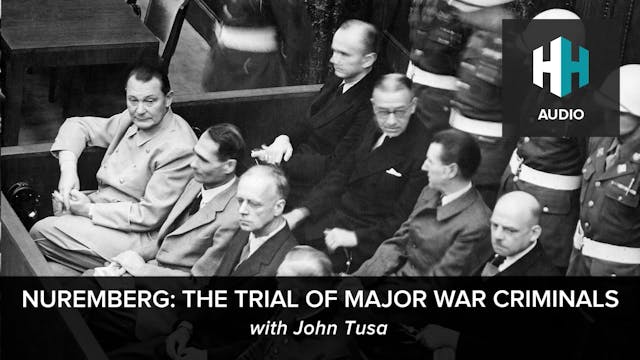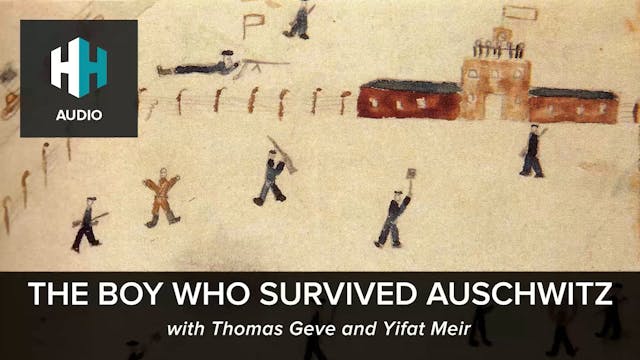The 1950s in West Germany saw a sharp decline in Nazi war crimes investigations and trials. Instead, there were campaigns for amnesties and reductions of earlier sentences, many led by former high-level Nazis and supported tacitly by conservative politicians. Prosecutions lacked any serious or systematic effort, and in both German states, the emphasis was more on integration and rehabilitation, with the aim of stabilising their war-torn societies, rather than the rigorous investigation of Nazi crimes. This began to change in West Germany following scandals about former Nazis in prominent positions. As the 50s wore on, several new trials spotlighted the horrors and scale of Nazi atrocities.
Rainer Schulze, Professor of Modern European History at University of Essex and Editor of The Holocaust in History and Memory, joins Dan on the podcast for a conversation about the prosecution of Nazi war criminals in post-war Germany. They discuss the turning point of the 1961 trial of Adolf Eichmann, how the 1963-1965 Auschwitz Trials in Frankfurt brought the Holocaust back into broad public consciousness and the legacy of Nuremberg in the present day with the case of the 100-year-old man who stood trial in Germany in 2021, charged with assisting in the of the murder of 3,518 people as a former SS guard at Sachsenhausen concentration camp.
Up Next in 🎧 Dan Snow's History Hit
-
🎧 Nuremberg: The Trial of Major War C...
Carried out in Nuremberg, Germany, between 1945 and 1949, the Nuremberg trials were held for the purpose of bringing Nazi war criminals to justice. The most widely-known of those trials was the Trial of Major War Criminals, held from November 20, 1945, to October 1, 1946. Judges from the Allied p...
-
Endurance22: The Search for Shackleto...
Have you heard? History Hit is going to the Antarctic!
Dan is joining an incredible expedition to locate the missing shipwreck of Ernest Shackleton’s vessel that was crushed by the ice and sank during his 1914 attempt to cross Antarctica. If they find the Endurance, it'll be the greatest underwa...
-
🎧 The Boy Who Survived Auschwitz
Thomas Geve was just 15 years old when he was liberated from Buchenwald concentration camp on 11 April 1945. It was the third concentration camp he had survived. During the 22 months he was imprisoned, he was forced to observe first-hand the inhumane world of Nazi concentration camps. On his even...




1 Comment